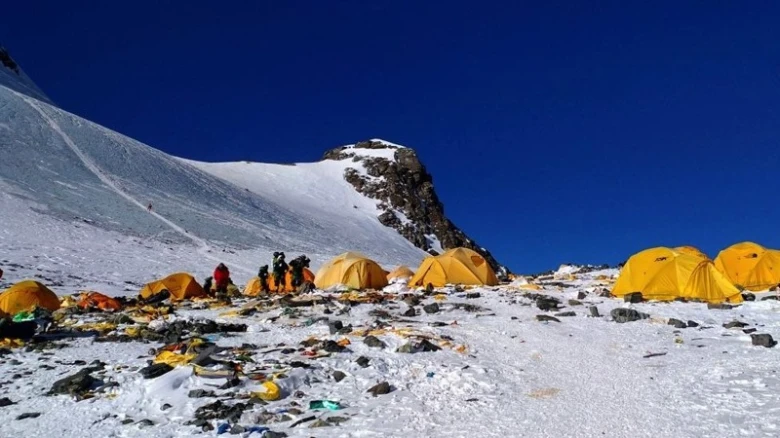Human waste is just one facet of Mount Everest's broader environmental crisis...
Digital Desk: In a significant move to tackle escalating environmental issues on Mount Everest, climbers are now mandated to carry back their waste to base camp. The decision, spearheaded by Mingma Sherpa, chairman of Pasang Lhamu rural municipality aims to address the mounting concerns surrounding fecal waste accumulation on the iconic peak.
Over the years, climbers have grappled with makeshift waste disposal methods, exacerbating the problem as extreme cold temperatures impede natural degradation, leading to visible human waste on the mountain rocks. To tackle this issue, Pasang Lhamu has instituted regulations mandating climbers to use specially designed poo bags equipped with chemicals for sanitary waste collection and transportation.
These reusable bags, designed for multiple uses, minimize the environmental impact and discomfort associated with waste disposal during expeditions. The initiative echoes similar successful practices on challenging terrains like Mount Denali and the Antarctic.
However, human waste is just one facet of Mount Everest's broader environmental crisis. Decades of commercial mountaineering have transformed the peak into a litter-strewn area, posing threats to both the environment and climbers' safety. In 2013, Nepal implemented a $4,000 rubbish deposit per team, refundable upon the removal of at least eight kilograms of waste per climber. Tibet imposed fines for non-compliance with waste removal regulations.
Despite these measures, the problem persists, with a fraction of climbers adhering to waste removal requirements annually. The Sagarmatha Pollution Control Committee (SPCC) reported that in 2017, climbers in Nepal brought down nearly 25 tonnes of trash and 15 tonnes of human waste, underscoring the urgent need for more effective waste management.
As Mount Everest grapples with environmental degradation and over-tourism, the implementation of mandatory waste removal emerges as a crucial step in preserving the peak's pristine beauty and ecological integrity. These measures not only mitigate immediate health hazards for climbers but also contribute to the long-term sustainability of one of the world's most iconic and vulnerable ecosystems.
The commitment to responsible waste management reflects a collective effort to strike a balance between the thrill of conquering Everest and the imperative to safeguard its fragile environment for generations to come.

Leave A Comment